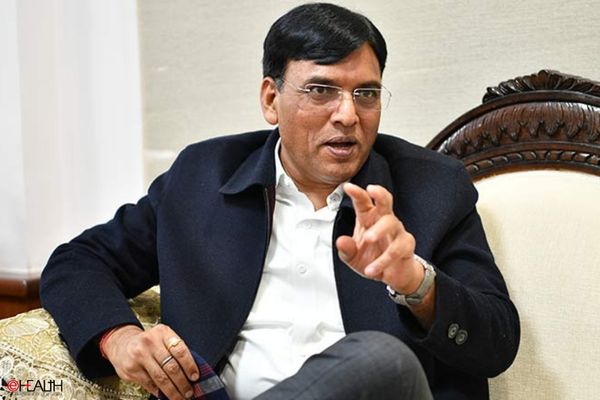A latest Ernst & Young survey of Chief financial officers (CFOs) in the Indian pharmaceutical sector underscores important changes in the role of the CFO and the finance function in driving the success of pharmaceutical companies. Respondents of the India CFO survey envisaged a change in their responsibilities, with an increased focus on serving as business partners and managing growth.
CFOs from Indian Pharmaceutical companies (IPCs) and India-based subsidiaries of major multinational pharmaceutical companies (MNCs) agree that improving shareholder value and responsiveness to business needs are among the top four drivers of change. The survey discusses perspectives of CFOs from IPCs and MNCs with combined revenues of US$5 billion, constituting 40% of the current industry size. The survey findings have been published in Progressions “Transforming Finance for Peak Performance”, the Ernst & Young bi-annual global pharmaceutical report presenting a collection of viewpoints on key industry trends. Mr. Muralidharan Nair, Associate Director, Healthsciences Practice, Ernst & Young India stated “The Indian pharmaceutical industry is witnessing spectacular change characterised by high growth among domestic companies and multinational subsidiaries. The survey reveals a gradual transformation of the finance function and clearly highlights the changing role of CFOs. Today’s CFO has to be proactive to support ambitious growth strategies in a highly dynamic and competitive market while driving an efficient and compliant organisation.” A key challenge in the next three years cited by 42% of all respondents was ‘ability to maintain and drive growth’. To address this challenge, 70% of MNC and one-third of IPC CFOs would like to increase time spent on business partnering – to be a proactive partner in decisions relating to value creation by way of strategy, governance and cost management. 48% overall respondents are seeking an enterprise wide cost reduction. CFOs in both groups cited bottom-line pressure as a key concern here (76% overall). 57% respondents believed supply chain as a focus area for cost reduction; however CFOs of India-headquartered pharmaceutical companies are more concerned about cutting costs in the supply chain (67%) compared to 44% of MNC CFOs. “Competitive pressures and price control regulations are driving cost reduction in the Indian pharmaceutical industry. It is imperative for companies to adopt appropriate cost management solutions and optimise internal efficiencies.” says Mr. Muralidharan Nair. While 43% CFOs from both IPCs and MNCs highlighted employee attrition as an area of concern, there were distinct differences in the responses from CFOs of MNCs compared to those from IPCs. Most notably, human resource challenges are more acute for MNC CFOs, with 67% ranking employee attrition as a key concern versus only 25% of IPC respondents. Moreover, three-quarters of MNC respondents say they are unable to attract the best talent compared to one-third of IPC respondents. There was wide agreement for the need of a holistic approach to managing risk. However, only 42% of IPCs surveyed had implemented a robust enterprise risk management framework, compared to 89% of MNCs. Not surprisingly, 58% of IPC respondents report being unsatisfied with current risk mitigation measures compared to only 11% of MNCs. Nearly half the CFOs point to a paucity of the ‘information that matters’ needed for effective decision-making and performance management. Although 81% of respondents have implemented Enterprise Resource Planning systems, 50% of MNCs and 67% of IPCs either do not or only partially extract performance measures from their ERP systems. Majority of IPC (70%) and MNC respondents (86%) believe they are not making optimum use of ERP. Global Findings Similar to the India Survey, ‘Progressions’ also includes findings of a global survey of pharmaceutical CFOs. The global survey results emphasize the key role the CFO will play as companies move away from a focus on driving top-line revenue growth to one on managing for return. To achieve this change, 74% of respondents in an Ernst & Young global survey of senior pharmaceutical industry utives agreed that CFOs will need to shift their time from low value functions such as defensive monitoring and reporting to a focus on partnering to help shape growth strategies that enhance business performance. Ernst & Young’s global survey showed that a large majority (92%) of respondents rated global cost reduction as a key issue for their business. Over half (56%) felt it was the CFOs role to lead cost reduction initiatives and that competitive pressures (58%), profitability (58%), and the need for better returns for investors (33%) were the key drivers for cost reduction. Along with managing for return, the CFO and the finance function are also critical to a company’s ability to achieve the right balance of risk and opportunity, and optimize risk as a key driver of value. In fact, the survey reported that the top three drivers that are transforming the role of CFO are increased regulatory and compliance requirements (46%), increased corporate governance obligations (36%) and increasing risk management responsibilities (32%). 32% of respondents feel that the CFO of their organization does not have enough understanding of the wider issues their business faces. On the cost reduction front, more pharmaceutical respondents are considering outsourcing and shared service models for certain internal functions than those in other industries; 64% of respondents are currently considering outsourcing certain internal functions as part of a cost-reduction measure versus 46% of respondents from a cross-industry population. Respondents were least comfortable in outsourcing clinical trials (36%), followed by sales and marketing (33%). About the surveys and Progressions Ernst & Young conducted two surveys to focus on the challenges and expectations facing pharmaceutical CFOs and their organizations. For the global survey, the Economist Intelligence Unit, on behalf of Ernst & Young, conducted a survey of 95 C-suite (i.e., Chief utive Officer, Chief Financial Officer, Chief Information Officer) and board level utives, including a significant number of CFOs. Respondents represented Western Europe (46%), Asia Pacific (22%), North America (19%), and other areas (15%). All respondents represented companies with at least US$1 billion in revenue; 49% represented companies with over US$10 billion in revenue. The interviews were carried out during September and October 2007. The India survey, conducted by Ernst & Young, focused only on polling CFOs representing two groups: CFOs of India-headquartered pharmaceutical companies, and CFOs of India-based subsidiaries of multinational pharmaceutical companies. The CFO interviews were carried out in November and December 2007 and were evenly split between the two groups. Findings are published in Progressions, the Ernst & Young bi-annual global pharmaceutical report presenting a collection of articles and viewpoints from pharmaceutical industry and Ernst & Young utives on key industry trends. About Ernst & Young Ernst & Young is a global leader in assurance, tax, transaction and advisory services. Worldwide, our 130,000 people are united by our shared values and an unwavering commitment to quality. We make a difference by helping our people, our clients and our wider communities achieve potential. For more information, please visit www.ey.com. Ernst & Young operates from 7 cities* in India (www.ey.com/india) with a work force of over 3500 people, who work towards the firm’s vision of being the trusted business advisor that contributes most to the success of people and clients by creating value and confidence. Global Tax Advisory Services, Risk Advisory Services, Transaction Advisory Services and Business Advisory Services are the core services offered by the firm in India.

Be a part of Elets Collaborative Initiatives. Join Us for Upcoming Events and explore business opportunities. Like us on Facebook , connect with us on LinkedIn and follow us on Twitter , Instagram.












